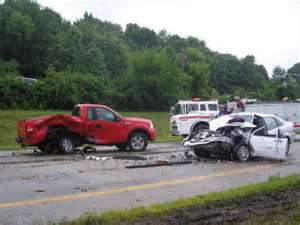Be it a pedestrian, cyclist or passenger of a car, any person victim of personal injury and damage to property must be eligible for compensation. To do this, it is however necessary to take certain steps.
Who can get it?
For injury:
Passengers, pedestrians and cyclists victims, except when the victim:
- Has voluntarily sought his damage;
- Has committed an inexcusable fault, exclusive cause of the accident. However, this fault may be opposite to the victim if it is 16 years of age or over 70 years old or if it is suffering from a permanent disability or disability at least equal to 80%.
Land motor vehicles drivers, except when they are responsible for the accident (the fault of the driver can limit or even exclude his right to compensation).
For property damage: All the victims to the extent that they are not responsible for the accident.
What is it necessary to do?
The insurance must be notified within 5 days following the accident.
The insurer of the person responsible for the accident should contact with the victim by addressing him a document called notice of information which itemizes procedure and informs the victim of his rights. Thus, it is possible to be assisted by a doctor, a lawyer, get a copy of the report drawn up by the police forces…
The information record is accompanied by a questionnaire which it is necessary to turn over to the insurer within a period of 6 weeks. The insurer must make an offer of compensation within 3 months following the accident (8 months if insurance shows that the injury is not fully quantified or that liability is not clearly established).
The offer of compensation include:
- The reimbursement of medical expenses;
- The costs of funeral if the accident caused the death of the victim;
- Repayment of the wages that the victim would have received without the accident;
- An allowance for permanent disability or partial if necessary;
- Repair of the moral prejudice (suffering), of the disfigurement;
Once the offers are received, the victim (or their successors) has 15 days to accept or refuse it. If the victim agrees, he does know the insurer who must pay the compensation within a period of 45 days. If it does not, either an amicable solution can be sought with the insurer, the victim asked for his insurer a best offer, by registered letter with acknowledgement of receipt. The dispute may also be brought before the courts.
